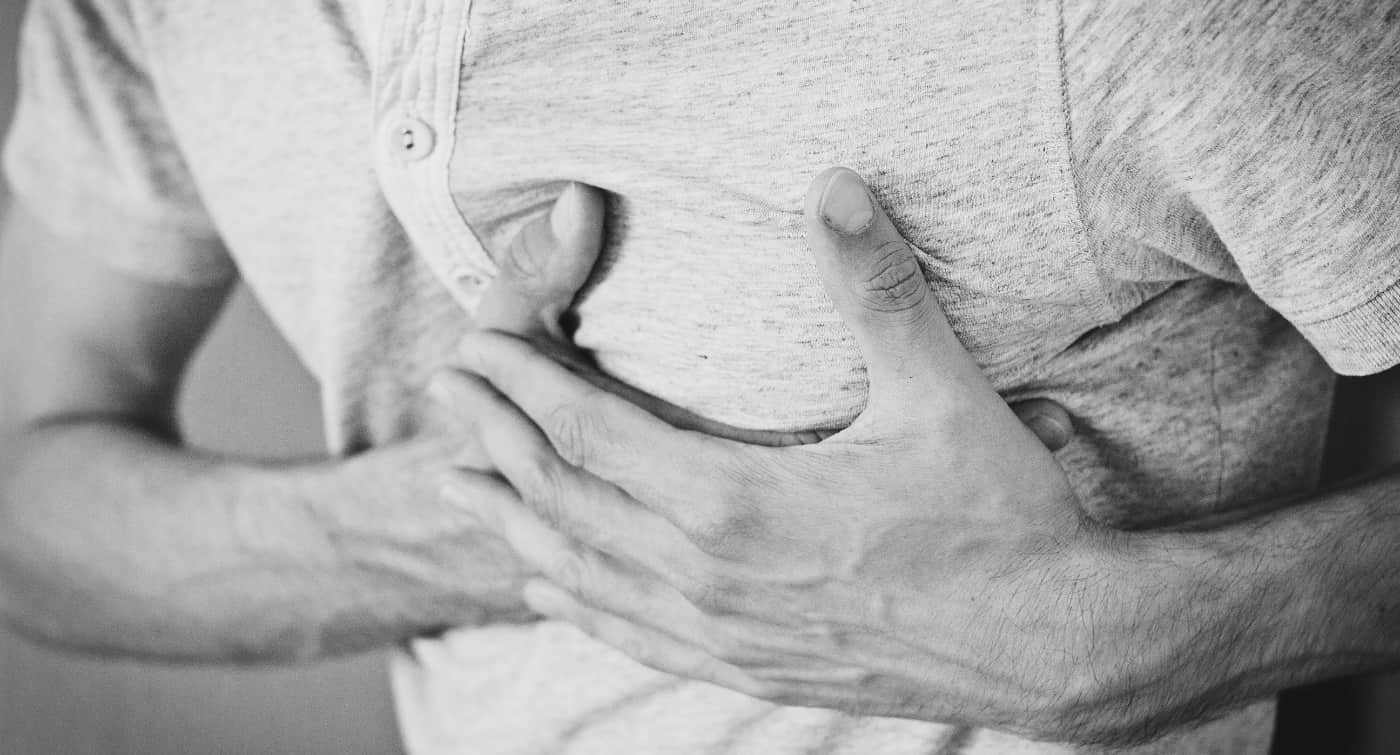If you have ever experienced chest pain, you probably understand the discomfort. It is both physical and mental. The heart is one of those organs that, when it hurts, makes you stop and say, “Uhhh, what’s going on?” So, feeling chest pain after drinking alcohol is one of those topics that should make us pause and take notice.
Why do we get chest pain after drinking alcohol, what does drinking do to your body (and heart in particular)? And is there danger involved, or bigger issues, when we have had chest pain after drinking?
And honestly speaking, the sooner you understand this, the better.
Why Do I Get Chest Pain After Drinking Alcohol?
These days, moderate drinking is imbibing around two drinks per day. Heavy is anything beyond that or if you drink four or more drinks in a single day. Prolonged term-heavy drinking has pretty serious repercussions. But if you drink moderately, you might not be in acute danger (that’s not to say there are zero consequences). Before we get into chest pain after drinking alcohol, let’s look at a couple of the other ways drinking affects your body.
Here’s a quick rundown of the effects of long-term heavy drinking:
- Liver Damage: Your liver bears the brunt of processing alcohol. With long-term drinking, you may find yourself with fatty liver disease, hepatitis, and even cirrhosis.
- Digestive Issues: When you drink a lot, your stomach takes a beating. This can lead to ulcers, gastritis, and even pancreatic inflammation.
- Brain Effects: Heavy drinking can result in cognitive impairment, memory loss, and an increased risk of mental health disorders.
- Cancer: Alcohol is a carcinogen. This means it damages DNA. Cancer is a risk with heavy drinking.
But one of the most serious and life-threatening consequences of heavy drinking is its effect on your heart and cardiovascular system.
How Alcohol Harms Your Heart
Bad news? Alcohol is a drug, and it is hard on your heart. Heavy drinking is going to give you issues. Here are some of the reasons this is the case.
- Increased Blood Pressure: Blood pressure is a major player in heart health. Drinking raises your blood pressure, and this can lead to hypertension—think heart disease and stroke.
- Irregular Heartbeat: Known as atrial fibrillation (or “holiday heart syndrome”), this condition can occur after heavy drinking episodes, leading to an irregular and often rapid heart rate.
- Cardiomyopathy: A particularly frightening form of heart failure that makes the heart too weak to pump blood efficiently. Which is pretty much the heart’s primary job.

Why Do I Get Chest Pain After Drinking?
All that said, the chest pain that comes specifically after drinking can have many causes. Whatever it is, your body is trying to tell you something. And it’s a good idea to listen up. Some of the reasons you have chest pain after drinking could be mild or benign. But others are more concerning.
Where the heart is involved, it is always a good idea to err on the side of caution.
Heartburn
Let’s start with heartburn. Alcohol tends to relax the lower esophageal sphincter. This muscle keeps the stomach acids at bay—keeps it from leaking into your esophagus. When it relaxes, you get heartburn. Acid is getting into your esophagus, and it feels like your chest is burning. When you feel this, you tend to (rightly) get a bit anxious, you get scared you are having a heart attack, and then the acid gets worse. It’s the classic cycle.
Spasm
Your esophagus might also be spasming. This also tends to feel like a heart attack.
Heart Strain
More seriously, the chest pain might be directly related to your heart. After consuming alcohol, especially in large quantities, your heart may struggle to maintain a normal rhythm or manage the increased blood pressure that often accompanies heavy drinking. This is heart strain.
Chest pain after drinking isn’t something to brush off, especially if it’s recurrent or severe. It could be a warning sign of an underlying heart condition that requires immediate medical attention.
Protecting Your Heart Health
Taking steps to protect your heart health is crucial, especially if you’ve experienced chest pain after drinking or have a history of heavy alcohol consumption. Here are some actionable steps you can take:
- Reduce Alcohol Intake: Reducing alcohol consumption is the first and most critical step. If you find it challenging to reduce your intake on your own, seeking help from a professional treatment center can make all the difference.
- Get Regular Check-Ups: Regular visits to your healthcare provider can help monitor your heart health and catch any issues early.
- Adopt a Heart-Healthy Lifestyle: Incorporate a balanced diet, regular exercise, and stress management techniques into your routine to support your cardiovascular system.
Getting Help
If you’re experiencing chest pain after drinking or are concerned about the impact of alcohol on your heart health, it’s time to take action. Covenant Hills Treatment Center in Orange County, California, has inpatient centers for men and for women in the beach towns of San Clemente and Dana Point.
Don’t wait for a more serious wake-up call from your body—reach out today and take the first step towards a healthier life.
Call now: 800-662-2873.








